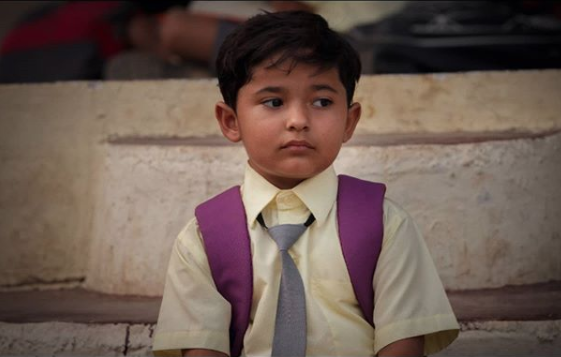Stories are powerful. They have the power to inspire. They have the power to influence. They have the power to make us think and they have the power to create change.
Natkhat is a story of a mother who uses the tool of storytelling to educate her young son about society, relationships, gender equality and respect.
Set in a developing village in India, the film opens on a large ground where several boys are seen playing cricket in small groups. Amongst them is a young boy Sonu (played by Sanika Patel), who overhears a bunch of teenage boys going over details of a plan they are perhaps planning to execute.
Though not said explicitly, it doesn’t take too long to decipher that the teenagers are planning a gang rape… casually in broad daylight.
Sonu curiously eavesdrops and makes mental notes about their discussion.

Still from 'Natkhat'What follows is a series of subtle and not-so-subtle examples patriarchy, gender inequalities, casual/marital rape and oppression in society. Whether it’s at school when the teacher ignores the girl student who raises her hand to answer or at home when the grandfather’s argument to a little boy’s criminally sexist comment is “Ladka hai, ho jata hai.”
Vidya Balan plays the role of a concerned mother who realizes her impressionable son is not only learning but also emulating all the toxicity.
She decides to narrate a story that weaves in the harsh and disturbing issues in our communities; a story that is told not only for Sonu but for the viewer as well.
Co-written by Annukampa Harsh and director Shaan Vyas, Natkhat carefully and cleverly show parallels between a kid’s tale and reality where a man’s ignorance and arrogance knew no bounds. How patriarchy creates imbalance, taints mindsets and leaves societies damaged and rotten.
The film leaves you with a sigh of relief when Sonu symbolically sheds the old-fashioned veil of patriarchal tradition and welcomes equality.
Maybe there’s still hope for positive change. Maybe it’s a start. Maybe that is the power of stories.
Popcorn Rating: ![]()
![]()
![]()
![]()
![]() [5 / 5]
[5 / 5]